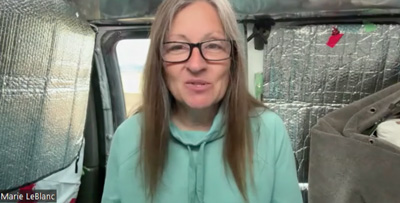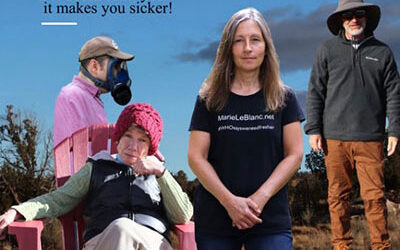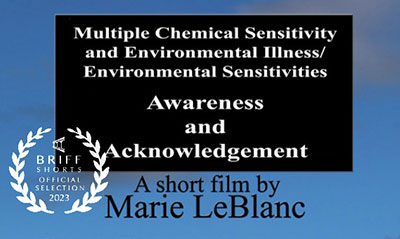 I have to live a life immaculately free of chemicals: a bubble life. And by chemicals, I mean, the crap that has infiltrated almost every known product since WWII: the fragrance in other people’s shampoo, the Tide and Bounce embedded in clothes, the formaldehyde in cabinet wood, the adhesive holding the imaginary world in place. I’m talking about modernity, and post-modernity, and air fresheners hanging from rearview mirrors; cigarette smoke and wood smoke. In the Tarot deck of access, I’m talking about: The World.
I have to live a life immaculately free of chemicals: a bubble life. And by chemicals, I mean, the crap that has infiltrated almost every known product since WWII: the fragrance in other people’s shampoo, the Tide and Bounce embedded in clothes, the formaldehyde in cabinet wood, the adhesive holding the imaginary world in place. I’m talking about modernity, and post-modernity, and air fresheners hanging from rearview mirrors; cigarette smoke and wood smoke. In the Tarot deck of access, I’m talking about: The World.
That’s why I live a life of virtual exile, down a dirt road far, far away.
After contracting chronic fatigue immune dysfunction syndrome / myalgic encephalopathy (CFIDS/ME) at age 23 – a gripping, crushing, suffocating illness that seized me by the ankles and dragged me under – I thought it could not get any worse.
In the year before, I had been riding my bike between cornfields in Ohio, miles uncoiling behind me. I had prodrome symptoms: a chronic deep cough that wouldn’t go away, a sore throat and difficulty swallowing. But suddenly, I was seized by odd bouts of vertigo. Just as suddenly, I came down with a surreal, flu-like illness. I thought I would die within weeks. “Flu-like” didn’t begin to characterize the strange illness that had overtaken my life. With a horror movie multiplex replacing my internal organs, I could barely walk or think or function.
I was about to embark on a cross-country move to San Francisco, and state-by-state grew more direly ill. By the time I arrived in the Bay Area, I could barely walk up a flight of stairs. I went to a feminist health center and was chastised about how long it had been since my last pap smear. I didn’t have a language for the fact that, in every cell of my body, I was crushed beyond recognition. There wasn’t, and still isn’t, a way to talk about the debilitating symptoms from neurologic to cardiac dysfunction that stole my life.
Over time, I lost everything: my ability to think clearly, sit upright for more than a short period, work, go to social events, continue my education, travel. I became almost entirely bedridden. Most of my last fifteen years have been characterized by this reality. I learn about social commerce from reality TV.
Despite the inundation of all of those crap TV commercial breaks, nothing prepared me for Multiple Chemical Sensitivity (MCS), a disease afflicting 15-33 percent of Americans to greater and lesser degrees (in my case: greater). MCS gave the postmodern notion of “otherness” Biblical proportions.
The environment is an abstraction to most people: global warming, lawn chemicals, Al Gore. To me, the environment is people, and the products they put on their skin. “Dude! Imagine if you could die from deodorant!” said this stoner that my friend hired to help me move to the woods. Yeah, dude, imagine.
If people use products other than natural, fragrance free shampoo, soap, deodorant, detergent, makeup, and lotion from a health food store, they prohibit me from going to the places they go. They literally bar my entry to doctors’ offices, stores, parties, public transportation, workplaces, courtrooms, universities and social clubs. If the products are particularly noxious, like Off bug spray or fabric softener sheets, they prohibit me from going to outdoor spaces. I live on five acres: they get the world.
This isn’t some kind of puritanical restraint on my part: an exposure to someone’s toxic crap can literally cause excruciating physical symptoms for weeks or months, injure me further or even kill me.
This is our pedestrian war, the one most people may not realize we’re fighting, because of what Rachel Carson calls “the harmless aspect of the familiar.” The petroleum wars in the Middle East are not just about transportation: 80-90 percent of the ingredients in synthetic fragrance (which is in nearly every body care and cleaning product) are derived from petroleum. Scented candles may give someone “serenity,” but they have nothing to do with peace.
The synthetic ingredients in soap, shampoo, deodorant, detergent, and cleaning products are in fact a direct result of wartime chemical industry activity. In the early 1900s, America lagged fifty years behind Germany in chemical production, and most American chemical engineering professors had been trained in German Universities. Once WWII successfully obliterated foreign competition, and particularly Hitler’s enormous chemical complex, IG Farben, the American chemical industry achieved rapid world domination, with petroleum and petroleum byproducts as its cornerstone. War chemicals seeped into all aspects of daily life: oh, the delights of DDT! Oh, a burly man on your lonely Mom’s cleaning spray! Oh, the empowerment of Dove’s “Campaign for Real Beauty,” the one based on toxic synthetic ingredients! What a pretty-smelling world.
And what about the insidious weapons of mass destruction? Sarin and other nerve gases are concentrated pesticides, just like the ones people put on their dogs or lick off of strawberries. The chemical industry has made everyone complicit, and created an impenetrable denial about the toxicity of modern products. Occasionally, someone will freak out about one ingredient, such as phthalates in cosmetics. But one ingredient is not harming those of us with MCS or causing new diseases: it’s the whole fucking cake.
I bought the innocuous product myth until I no longer had a choice. When I arrived in San Francisco in 1992, I saw a job posting from a woman with MCS and her requirements for an employee were so severe – no products containing scents or essential oils, a clothing change at her house – that my friends and I just laughed. Imagine being so Karmically stupid!
When I later posted a job listing – with much the same wording as that woman in San Francisco – someone having a manic episode wrote me: “You sound fascist. Pernicious soul. Ever hating Jew. I am God. I am beautiful. Write back!” and “Maybe MCS is what you deserved. Just remember, when you [are] fucked over by life: Karma happens. Not everyone loves Burt’s Bees, you know. Good luck in the woods, dying off, you old hippie.”
This person has a psych disability (perhaps caused by neurotoxic chemicals too?), but s/he did hit upon some collective unconscious fear and loathing. This kind of bile is just as easily (and powerfully) expressed in daily gestures, and I’d rather have harsh words than destructive chemical insult. Sticks and stones cannot hurt me, but I live my life on the edge of becoming the next Cindy Duerhing – an MCS activist who died after an extremely isolated fight against the disease at age 36. Or Dan Allen, a football coach from Boston who died of MCS complications in 2004. His infectious team spirit could not rally the world to change for him in time to save his life. Can mine?









0 Comments